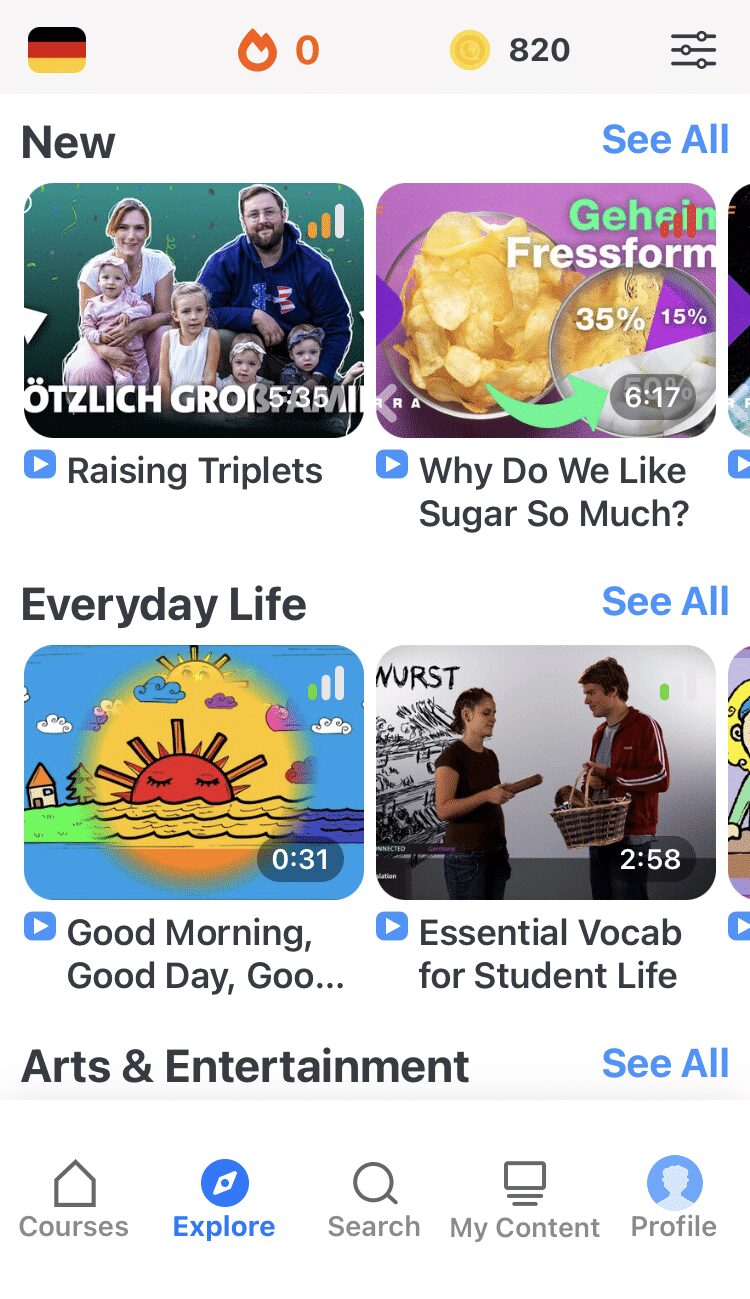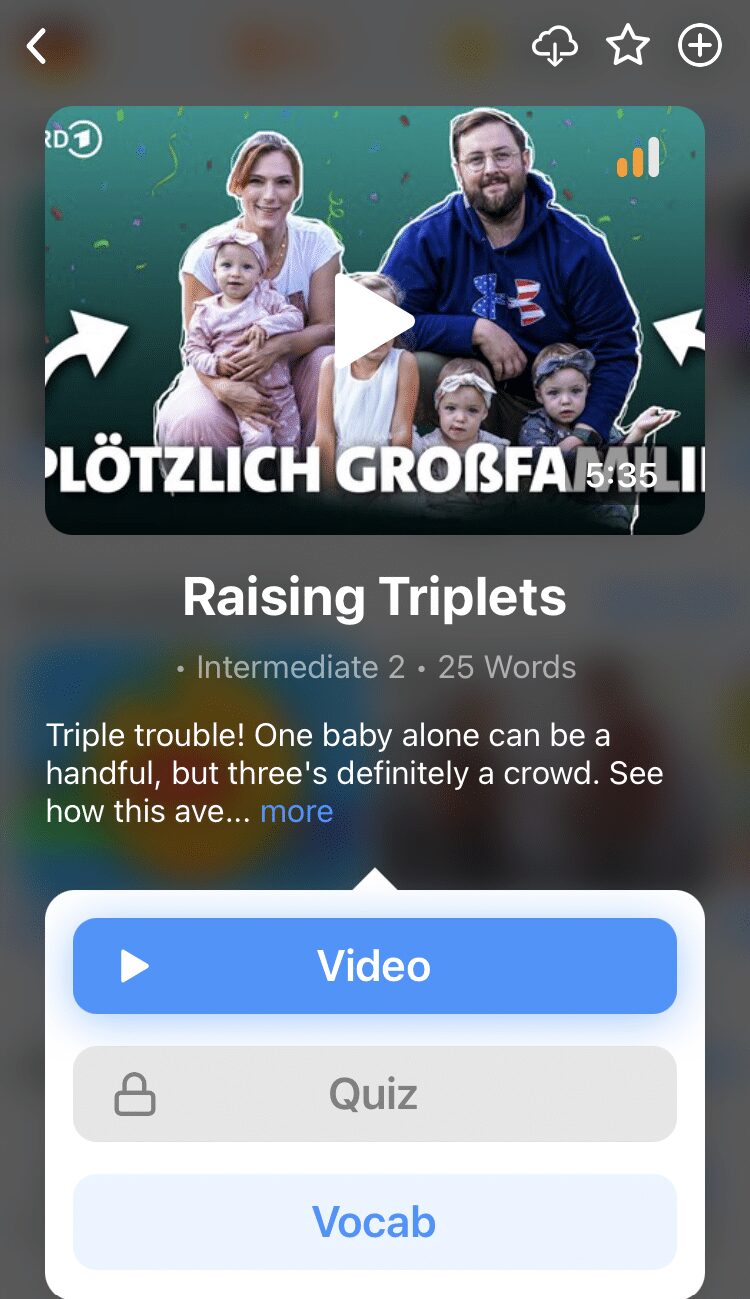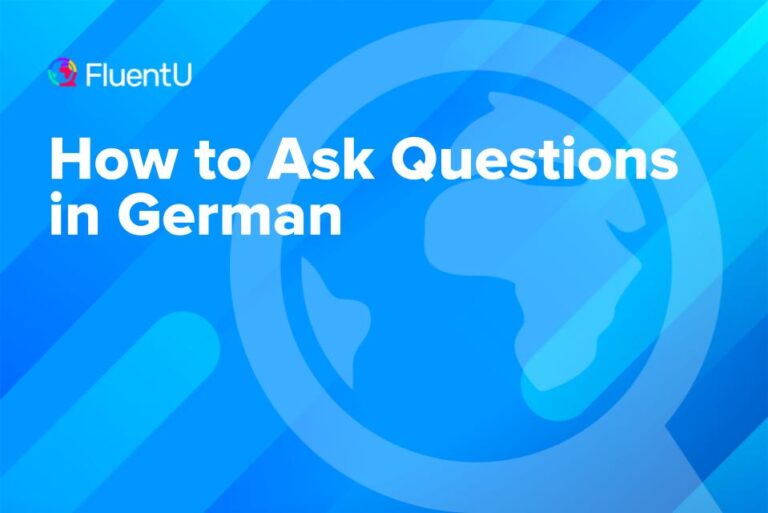Contents
- 1. Tschüss / Tschüssi — Goodbye
- 2. Ciao — Bye
- 3. Ade — Farewell
- 4. Auf Wiedersehen — See you again
- 5. Gute Nacht — Good night
- 6. Bis bald / Auf bald — See you soon
- 7. Bis dann / Bis später — See you later
- 8. Wir sehen uns — See ya later
- 9. Man sieht sich — Be seeing you
- 10. Bis zum nächsten Mal — See you next time
- 11. Wir sprechen uns bald / Wir sprechen uns später — Talk to you later
- 12. Auf Wiederhören — Upon hearing again
- 13. Schönen Tag (noch) / Schönes Wochenende — Have a good day / Have a good weekend
- 14. Viel Spaß! — Have fun!
- 15. Lebewohl — Live well
- 16. Gute Fahrt! / Gute Reise! — Have a good trip!
- 17. Ich muss los — I have to go
- 18. Mach’s gut — Take care
- 19. Pass auf dich auf — Take care of yourself
- 20. Pfiat di — God guard you
- And One More Thing...
20 Ways to Say Goodbye in German

Tired of saying Tschüss all the time? With this list, you’ll learn more ways you can wish someone a fond farewell. Some of them are very colloquial, so they’ll help you fit right in with natives in certain places.
Pair these with German greetings, and you’ll be off to a strong start with your conversational German.
1. Tschüss / Tschüssi — Goodbye
The German equivalent of “bye” Tschüss is a nice, informal way of saying goodbye in just about any situation.
You can also add a simple i on the end to adorn your farewell with a cutesy, if a little cloying, twist—Tschüssi! This is sort of like saying “bye bye” or an elongated “byeeee” in English.
2. Ciao — Bye
In my experience, Ciao is super common in Berlin, where you’ll probably hear it just as often as Tschüss.
Obviously, it comes from Italy (where it’s both a greeting and a goodbye), but people tend to use Ciao as a way of saying bye in many European countries.
3. Ade — Farewell
Derived from the French Adieu, Ade is a short, sweet and casual way to bid someone farewell. It’s more commonly used in southern Germany, such as in Bavaria. It makes sense since Germany shares a border with France in the south.
Adieu itself is also used as a farewell expression by Germans, though not as frequently as actual German phrases. Interestingly, it may have an etymological connection to the German farewell tschüss: the word appears to be derived from the Low German adjüs, which itself traces back to the French adieu.
4. Auf Wiedersehen — See you again
Though taught everywhere, this phrase is pretty old-fashioned and definitely not your typical German goodbye. May be appropriate for formal circumstances.
Think of it as saying “Farewell”—probably too formal for your friends or classmates.
5. Gute Nacht — Good night
Not as formal as Gute Morgen/Abend, this is the German version of “Goodnight”, and it’s used when parting ways with someone after dark.
6. Bis bald / Auf bald — See you soon
This is equivalent to “See you soon,” and is a good, casual way of saying bye to friends.
7. Bis dann / Bis später — See you later
These both mean “See you later.”
Just like Bis bald, these are great options for saying bye to casual friends and acquaintances.
8. Wir sehen uns — See ya later
Another nice way to see “See ya later.”
If you add a dann to say Wir sehen uns dannb , it means “See you then,” which can be a good way to say bye after making plans with someone.
9. Man sieht sich — Be seeing you
Similar to Wir sehen uns, this phrase loosely translates to “be seeing you.” You can use it with your pals when you expect to see them again at some point.
If you’re a fan of German proverbs and sayings, you may have already encountered Man sieht sich from a popular expression: Man sieht sich immer zweimal im Lebenb , which means “You always meet twice in life.”
It’s a saying that can be a sweet way to reassure someone that you two will cross paths again, but it can also be a warning to avoid leaving bad impressions on the chance you’ll again make contact with the bloke you’ve upset.
10. Bis zum nächsten Mal — See you next time
This is a way to say “See you next time,” and would be appropriate for saying goodbye to someone you see regularly: for example, a classmate or coworker.
11. Wir sprechen uns bald / Wir sprechen uns später — Talk to you later
This literally means “We’ll speak soon,” or “We’ll speak later.” Equivalent to the English “Talk to you later.”
A good way of ending phone conversations.
12. Auf Wiederhören — Upon hearing again
You might notice it looks familiar to Auf Wiedersehen, which uses the verb sehen (to see) whereas this expression uses hören (to hear) so literally “upon hearing again!”
This is, therefore, unsurprisingly, the appropriate way to bid farewell to someone on the telephone.
13. Schönen Tag (noch) / Schönes Wochenende — Have a good day / Have a good weekend
These are good ways to say bye in German to just about anyone.
Schönen Tag noch means “Have a good day,” while Schönes Wochenende means “Have a good weekend.”
Noch is an adverb that could mean “still” or “yet.” Here, noch suggests a sense of continuation, and that you wish someone’s rest of the day remains good. It’s a little word that can add a bit more sincerity on certain occasions.
You’ll often hear store clerks using these phrases. If someone you know says this to you, you could respond with Dir auch! (“You too!”).
Since these expressions for saying goodbye in German depend on a lot of context, you can listen to how native speakers use them on FluentU.
FluentU takes authentic videos—like music videos, movie trailers, news and inspiring talks—and turns them into personalized language learning lessons.
You can try FluentU for free for 2 weeks. Check out the website or download the iOS app or Android app.
P.S. Click here to take advantage of our current sale! (Expires at the end of this month.)
14. Viel Spaß! — Have fun!
This means “Have fun!” and can be used in many conversational contexts—for example, when saying goodbye to friends who are going to a party, on a trip, etc.
15. Lebewohl — Live well
Translating to “Live well,” Lebewohl is probably the most literal German version of the word “farewell.”
You might want to be a little more mindful when using this expression, as it can carry a bit more weight than the typical airy goodbye. Lebewohl could bear the connotation that you don’t expect to see someone for a while, which is why you’re wishing them well.
Appropriate situations to use Lebewohl can involve someone moving away or going on a lengthy trip. In other words, situations that may call for a teary-eyed farewell.
16. Gute Fahrt! / Gute Reise! — Have a good trip!
This means “Have a good trip!” and is a good way to say bye to someone who’s going on a vacation or journey of some kind. So, if the context is right, it can work well together with the aforementioned Lebewohl.
17. Ich muss los — I have to go
If you have to leave, then say as much, don’t just rudely scurry off! Ich muss los is a casual but to-the-point way to announce your departure. You can also use it in slightly more formal settings, though I advise you to tack on an apology with it.
When you want to provide an explanation for leaving, just append your reason (and any expressions of disappointment or regret), like so: Ich muss los, es ist schon spät (I have to go, it’s late).
18. Mach’s gut — Take care
A contracted form of Mach es gut (which literally translates to “Make it good”), this phrase can also be considered equivalent to the English “Take care” or “Have a good one.” It’s a casual expression you can use with your pals or family members, and a friendly way to wish someone a good time after your leave.
You could respond to this expression with an amicable Sie / Du auch (“You too”), Gleichfalls (“Likewise”) or Danke (thanks).
19. Pass auf dich auf — Take care of yourself
Why two aufs? It’s not a typo! The verb conjugated here is auf sich aufpassen , which means “to take care of oneself.” The first auf is from the separable verb aufpassen.
This phrase has a similar translation to Mach’s gut, but it has a slightly different connotation. It can suggest you’re worried for the person you’re speaking to. Perhaps they’re not in the best of health, or maybe they just told you they’re going through some rough times. A gentle but firm Pass auf dich auf can relay your concern a little more strongly than a carefree Mach’s gut.
20. Pfiat di — God guard you
Pfiat di is an interesting farewell expression that is regional to southern Germany in places like Austria and Bavaria.
It’s derived from the complete phrase Behüte dich Gott or Gott behüte dich , both of which mean “May God protect you.” This phrase got shorter and more mangled over time to become Pfiat di. I’ll admit, I’m not quite sure where the pf came from, but it could be a matter of dialect.
Despite its initial religious connotation, Pfiat di itself is a relatively casual way to say goodbye.
Parting doesn’t have to be such sweet sorrow. With these phrases, the simple act of saying goodbye can feel more authentic and satisfying to your German learner disposition.
Man sieht sich!
Download: This blog post is available as a convenient and portable PDF that you can take anywhere. Click here to get a copy. (Download)
And One More Thing...
Want to know the key to learning German effectively?
It's using the right content and tools, like FluentU has to offer! Browse hundreds of videos, take endless quizzes and master the German language faster than you've ever imagine!
Watching a fun video, but having trouble understanding it? FluentU brings native videos within reach with interactive subtitles.
You can tap on any word to look it up instantly. Every definition has examples that have been written to help you understand how the word is used. If you see an interesting word you don't know, you can add it to a vocabulary list.
And FluentU isn't just for watching videos. It's a complete platform for learning. It's designed to effectively teach you all the vocabulary from any video. Swipe left or right to see more examples of the word you're on.
The best part is that FluentU keeps track of the vocabulary that you're learning, and gives you extra practice with difficult words. It'll even remind you when it’s time to review what you’ve learned.
Start using the FluentU website on your computer or tablet or, better yet, download the FluentU app from the iTunes or Google Play store. Click here to take advantage of our current sale! (Expires at the end of this month.)












